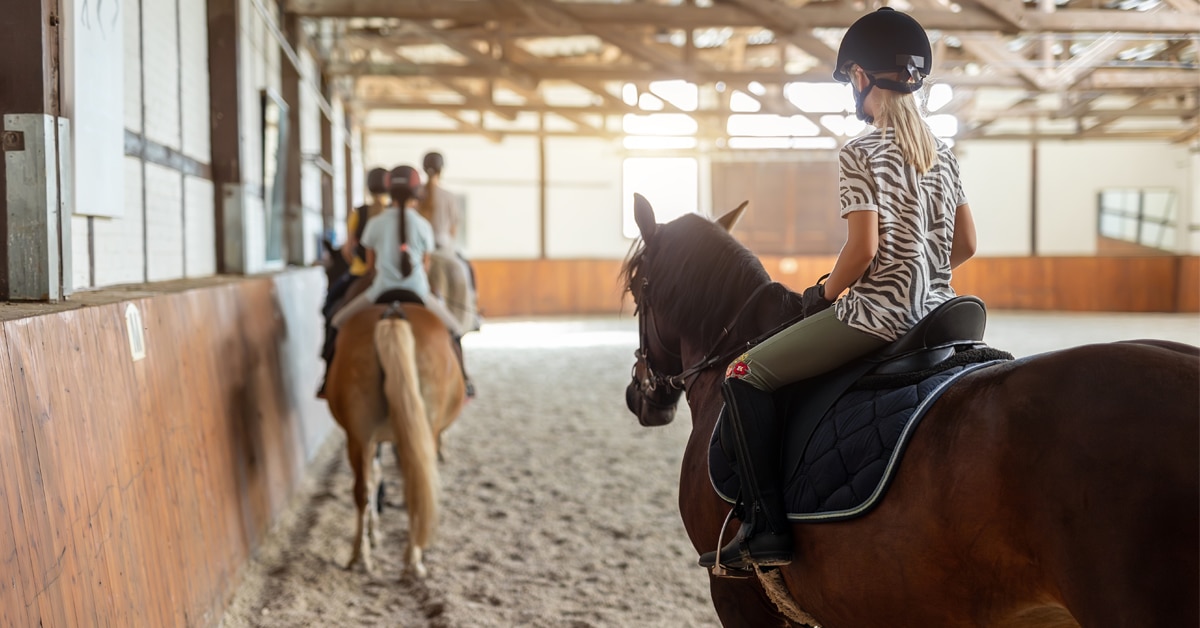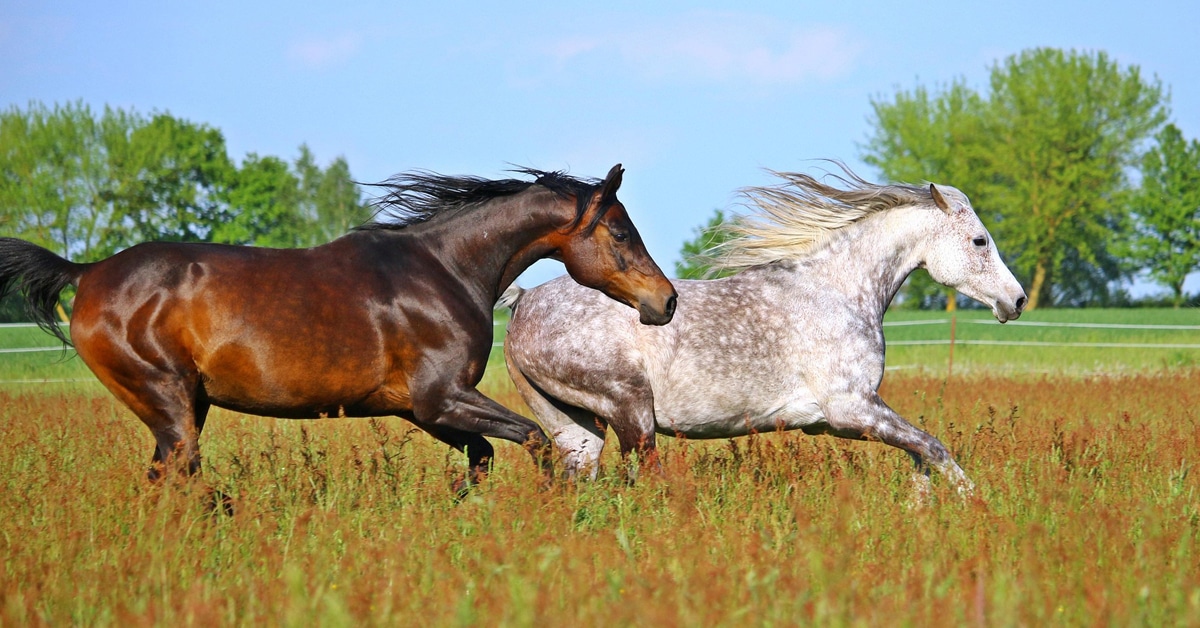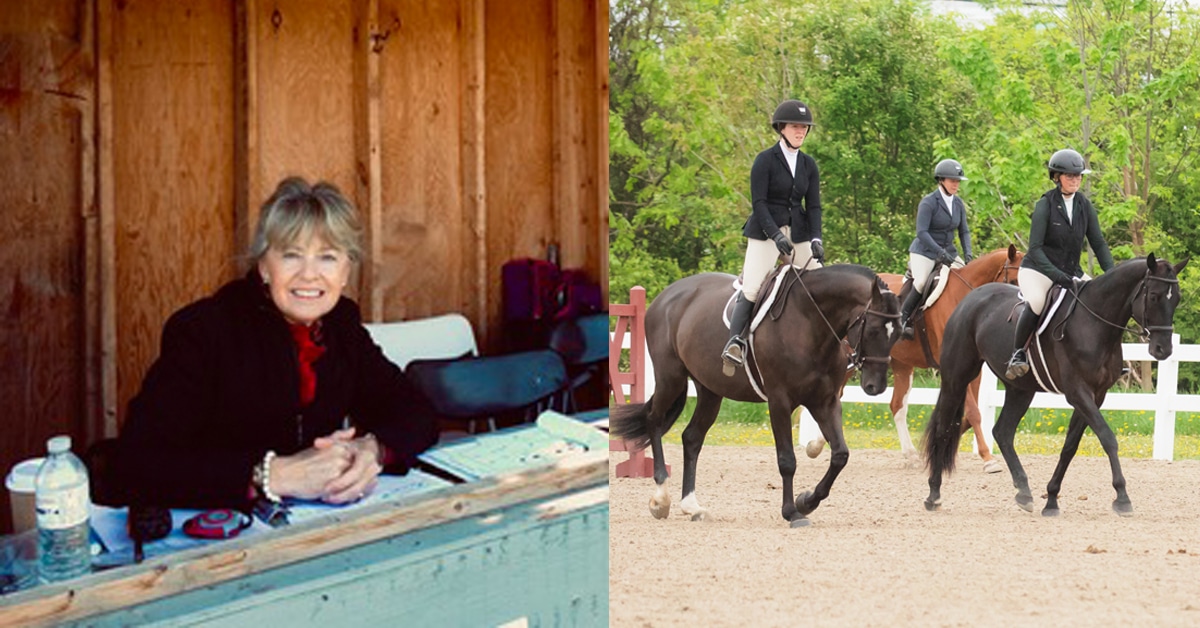On September 25-26, 2021, the Barn Equestrian Centre (fondly known as The Barn) in Kelowna, BC, hosted a clinic with Canadian dressage icon Cindy Ishoy. The energy was notable; the auditors were downright giddy. It has been a long time since anyone has been able to participate safely in such an event and to have such a talented clinician was icing on the cake.

Cindy Ishoy with clinic participant Wes Shield aboard Szavannah, a six- year-old Oldenburg mare schooling second/third level. (Susanne Currie photo)
Following the clinic, I reached out to the riders and asked them about the best advice they received. As I read through the list below, it dawned on me that most of the wisdom offered by Cindy can be applied to our everyday lives. We all have that favourite quote — but what makes some turns of phrase so significant?
Throughout the entire weekend, Cindy pushed the riders just beyond their comfort zone. Psychologically, hearing that someone else believes you can achieve more can be a powerful incentive to try harder. The riders did just that, and from the beginning of the lesson to the end horses and riders witnessed some resounding changes in their ability to work together.
There were four main life lessons that could be applied to the cornucopia of advice and tips Cindy provided over the weekend: Be mindful & aware. Communicate. Make mistakes. Plan your journey.
Of course, everyone may have a different interpretation and that is what makes life interesting!
Be Mindful & Aware
Being mindful means being aware of your thoughts, emotions, and how you’re feeling (physically and mentally). Being aware means having knowledge of something, for example your body position and the energy that surrounds you.
- When the judge feels the need to cluck, your horse needs to be more active behind.
- Slow doesn’t mean collected. Collection occurs when a horse’s center of gravity is shifted backwards and the energy becomes elevated and light. If we apply this to a life lesson, we could also interpret this as “move with purpose.” Take the time to move with a purpose, to accomplish something, to become aware, to feel, and to be mindful. It will allow you to feel more energized, clear-minded and ready to achieve the most amazing things.
- You don’t get the score for almost. True enough – a 15m circle does not equate to a 20m circle. In life, promises, plans, and good intentions are a waste of time and a fruitless exercise if an ‘almost’ action. Whether it’s a simple act of kindness or the idea to start a not-for-profit organization, everyone can do something to make a positive difference in the life of someone else.
- Don’t pull back, simply resist.
- Kick with a loose leg.
- Shoulders back, look up!
- The horse’s shoulders are narrower than the hind end, so if you have the horse’s shoulders on the wall your horse is travelling crooked.
- Ride your corners to set yourself and your horse for the next exercise (not to be used for young horses).
Communicate
Communication occurs when one person speaks, uses non-verbal body language, or writes a letter to convey a message which is received by one or more people. Clear communication exists when the message received is the same as the message which the sender intended to send. A lack of communication leaves fear and doubt. Cindy emphasized the importance of communication between horse and rider with the lessons below:
- Perfect practice makes perfect. Seek guidance from those who already know what perfect practice looks like, otherwise we will become masters of our mistakes. The moment we have peers and mentors challenging the habits we have adopted we put ourselves in a position that accelerates our growth and potential.
- When you are not getting the results you want, change the exercise to accomplish your goal. If you end up failing in achieving your goals, it’s time to change the plan, not the goal – in riding and in life. Nothing is impossible and you can achieve anything if you set your mind to it and don’t give up.
- No contact does not equate to soft contact; the horse needs a steady, forgiving contact.
- You need to ride accurately and consistently all the time. Horses are black-and-white in their thought process, they don’t see gray, nor understand why they can’t shake their head through a free walk in a test when they do it all the time at home.
- Your aid isn’t a question; be clear and consistent.
Make Mistakes
Mistakes help us gain knowledge. However, it takes a willingness to learn from them. Without mistakes, we lose endless opportunities to gain valuable knowledge and learn. The most successful riders in the world have made countless mistakes, they don’t give up, rather they have chosen to learn from them.
- Always look for a positive within the negative.
- You and your horse need to make mistakes in order to grow.
- Always push your horse forward a few strides when they make a mistake and then correct it.
Plan Your Journey
A plan is a method of achieving something that you have worked out in detail beforehand. If you plan what you are going to do, you decide in detail what you are going to do, and how you intend to do it. You can go a step further and write it down through journaling.
When you have a problem and you’re stressed, keeping a journal can help you identify what’s causing that stress or anxiety. Once you’ve identified your stressors, you can work on a plan to resolve the problems and reduce your stress. Journaling is just one aspect of a healthy lifestyle for managing stress, anxiety, and mental health conditions.
- Always have a goal – for today, the coming week, month, and year and come in ready to train!
There is no surprise that our equine partners teach us more than what we could ever hope for. The secret to becoming a successful equestrian is analogous of our day-to-day routine and riding habits.
The Latest










